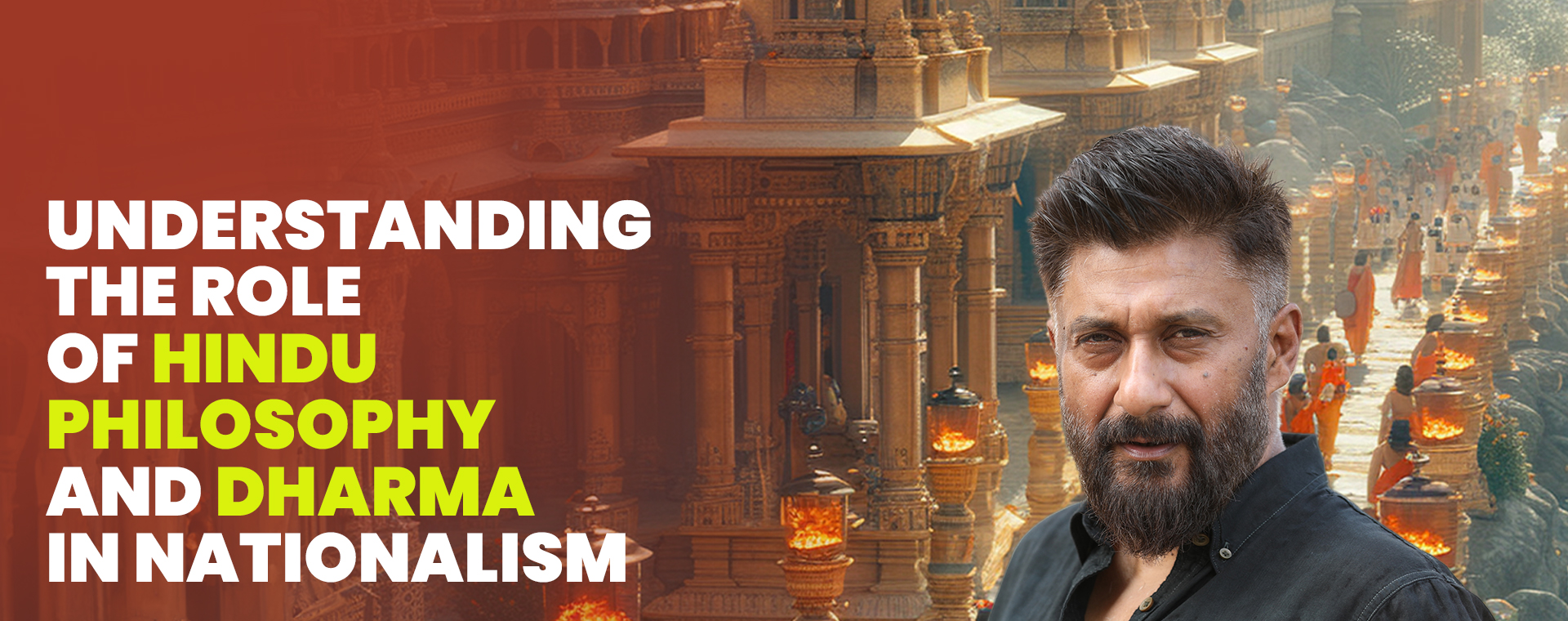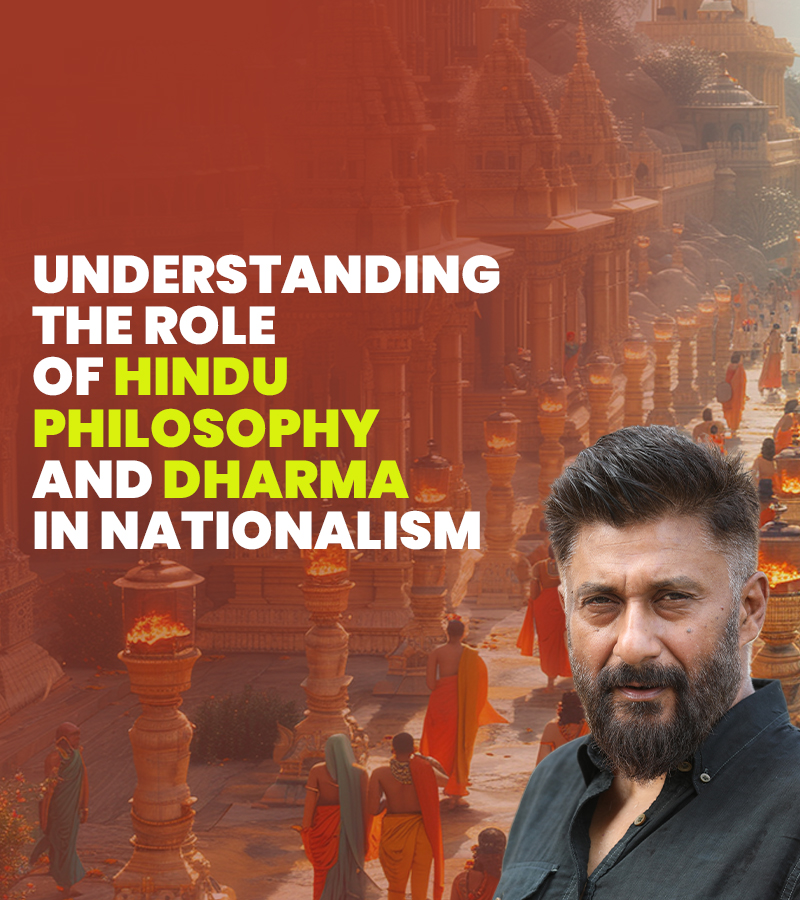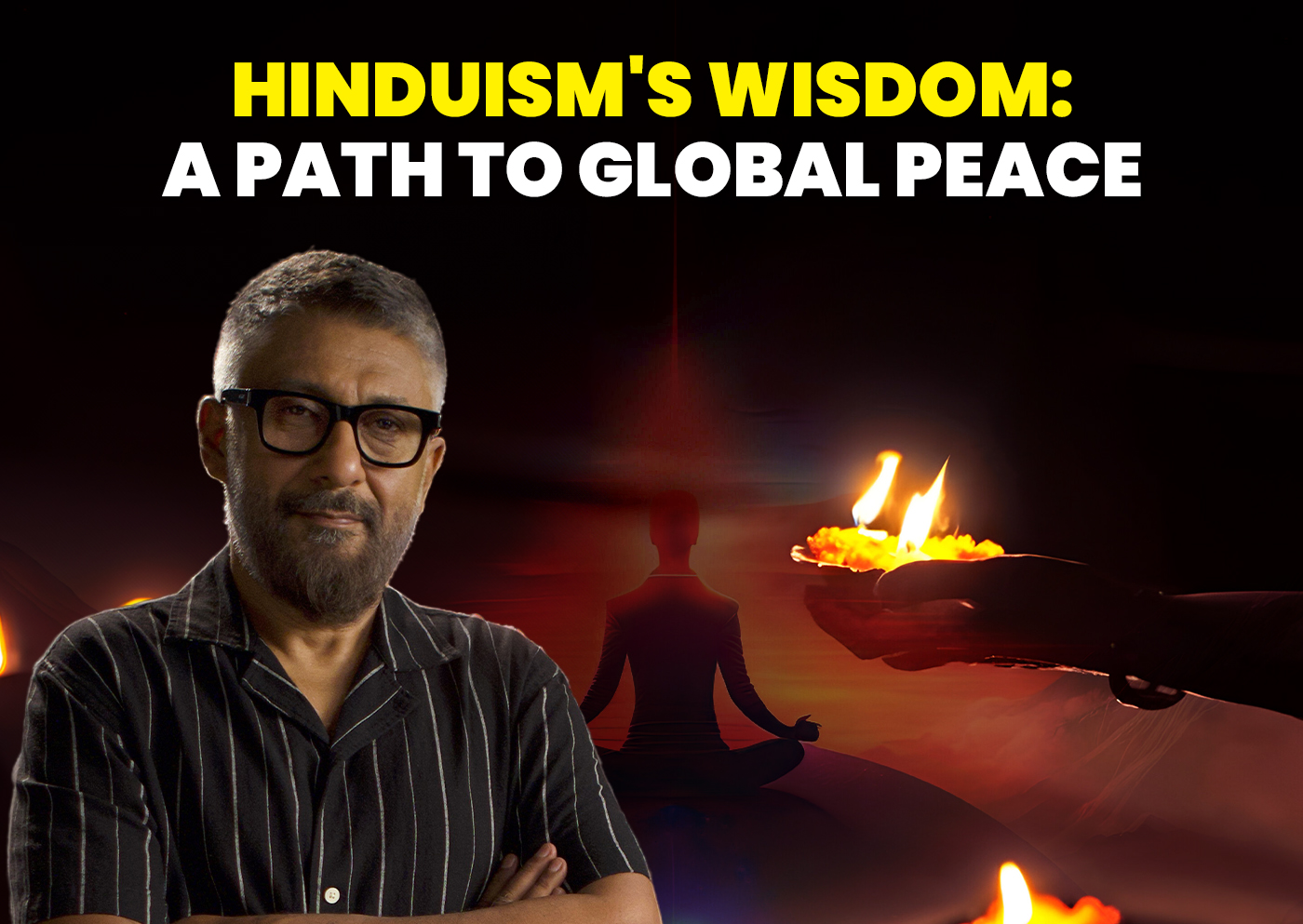

The Link Between Hindu Philosophy, Dharma, and Nationalism
Discover how timeless Hindu teachings on Dharma can redefine modern nationalism and guide us towards an ethical and inclusive society.
Introduction:
The profound philosophies rooted in Hindu traditions have long been a cornerstone of India’s cultural and spiritual landscape. In recent discussions, particularly those spearheaded by Vivek Ranjan Agnihotri, the relevance of these ancient philosophies has been linked to contemporary issues like nationalism. This blog delves into how Hindu philosophical concepts, particularly Dharma, enrich our understanding of nationalism today, supported by Agnihotri’s insights and public discourses.
Understanding Hindu Philosophy and Dharma:
Hindu philosophy, with its diverse array of thoughts ranging from Vedanta to Samkhya, has offered a complex understanding of life, ethics, and the universe. Central to Hindu philosophy is the concept of Dharma—often translated as duty, righteousness, or moral law. Dharma is a fundamental principle that guides individual behaviour and societal norms, ensuring order and harmony within the cosmic and social spheres.
Dharma’s Role in Nationalism:
Dharma’s influence extends beyond personal morality, touching upon the duties citizens owe to their country. In this light, nationalism can be seen not just as a patriotic feeling but as a Dharma towards one’s nation—a concept of duty that includes upholding one’s cultural heritage and contributing to the nation’s well-being. Vivek Ranjan Agnihotri has often emphasized this point in his talks and writings, emphasizing that true nationalism is inherently linked to performing one’s Dharma in nation-building.
Vivek Agnihotri’s Perspective:
In his talks, such as the one at the Chinmaya Mission where he discussed “The Greatness of Hindu Philosophy,” Agnihotri explores how these ancient teachings can inform modern-day governance and societal structure. He argues that understanding and adhering to Dharma can lead to a more profound and spiritually aligned form of nationalism that promotes peace and justice rather than divisiveness.
Contemporary Relevance of Hindu Philosophical Concepts:
Today, as global and local tensions challenge the idea of nationhood, Hindu philosophical teachings on Dharma provide a framework for addressing these challenges. They offer a way to navigate the complex interplay between individual actions and collective well-being, suggesting that each person’s duty to their community and country is vital for societal harmony and progress.
Nationalism and Global Harmony:
Agnihotri’s interpretation of Hindu philosophy also touches on the idea of Vasudhaiva Kutumbakam—the world is one family. This principle can reshape nationalism, making it a more inclusive concept that acknowledges global interdependence while celebrating national identity. Such a vision encourages nationalism that seeks to contribute positively to the global community and is rooted in Dharma’s ethical and moral principles.
Conclusion:
The links between Hindu philosophy, Dharma, and nationalism are deep and complex. Through the lens of thinkers like Vivek Ranjan Agnihotri, we can see how ancient wisdom can address modern challenges. This approach preserves tradition and revitalizes it, making it relevant in today’s ever-evolving global landscape. As we move forward, it becomes increasingly important to engage with these philosophies, not as relics of the past but as living ideas that can guide our approach to life and governance.
Call to Action:
Engage with these timeless philosophies through Agnihotri’s talks and writings, and explore how integrating Dharmic principles into your worldview can enrich your understanding of nationalism and your contribution to society. Join the conversation on how we can collectively harness the power of ancient wisdom to address contemporary challenges and build a just and prosperous world.






